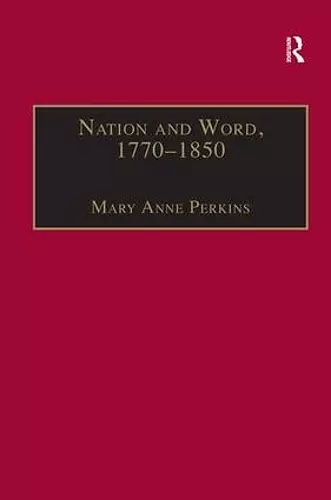Nation and Word, 1770–1850
Religious and Metaphysical Language in European National Consciousness
Format:Hardback
Publisher:Taylor & Francis Ltd
Published:18th Aug '99
Currently unavailable, and unfortunately no date known when it will be back

The emergence of the modern nation state in Europe and the accompanying rise in national consciousness led to a heightened awareness of the close relationship between language and national identity. In this book the author shows that this relationship was expressed through the themes and figures of a ’language’ of nationhood, drawn from a common European cultural heritage, particularly the Classical and Christian traditions. Despite its common roots, this language became the medium through which the diversity of national characters was expressed. The idea of the divine Word, for example, enabled the sacredness and power of national language to be celebrated. The identification of poet and prophet gave Romantic nationalists an authority to speak for and to the nation, and the theme of the Chosen People was often adopted to express the elect status of a writer’s own nation. In conclusion, it is shown that this language of nationhood remains a powerful force at the end of the twentieth century.
'... brings together a diverse group of Romantic-era ideas in which language, philosophy, and theology are interwoven in complex ways.' Romanticism on the Net '... should be read precisely because it provides a powerful counter to what has been, at least until very recently, the critical orthodoxy of a materialist Romantic history...' Romanticism on the Net '... wide-ranging and readable study...' Journal of Ecclesiastical History 'It is recommended reading for historians of religion, nationalism, and European intellectual history.' Church History
ISBN: 9781859282861
Dimensions: unknown
Weight: 453g
392 pages